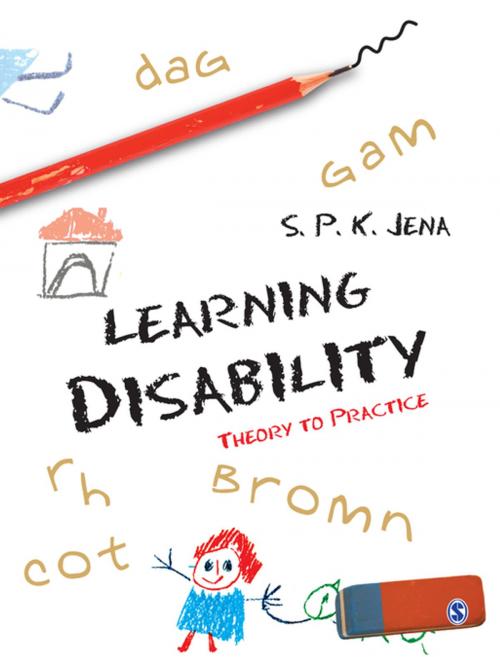| Author: | S P K Jena | ISBN: | 9788132117599 |
| Publisher: | SAGE Publications | Publication: | June 30, 2013 |
| Imprint: | Sage Publications Pvt. Ltd | Language: | English |
| Author: | S P K Jena |
| ISBN: | 9788132117599 |
| Publisher: | SAGE Publications |
| Publication: | June 30, 2013 |
| Imprint: | Sage Publications Pvt. Ltd |
| Language: | English |
In spite of their average or even above-average intelligence and conventional classroom experience, a large number of children suffer from learning disabilities. Failing to cope with the academic demands of the school, many of them drop out at an early age. This deprives them of many opportunities in life that a literate person enjoys.
In this context, this book serves two major objectives: it provides up-to-date information to the readers on theories and current practices in remediation of learning disability, and demonstrates the therapeutic effectiveness of two major techniques of intervention, namely, cognitive behaviour therapy and computer-assisted instruction, through a series of case studies. Thus, it bridges the theory–practice gap originating out of the difference between fundamental research and its actual implementation and places the treatment programmes on a firmer scientific footing by validating them empirically.
In spite of their average or even above-average intelligence and conventional classroom experience, a large number of children suffer from learning disabilities. Failing to cope with the academic demands of the school, many of them drop out at an early age. This deprives them of many opportunities in life that a literate person enjoys.
In this context, this book serves two major objectives: it provides up-to-date information to the readers on theories and current practices in remediation of learning disability, and demonstrates the therapeutic effectiveness of two major techniques of intervention, namely, cognitive behaviour therapy and computer-assisted instruction, through a series of case studies. Thus, it bridges the theory–practice gap originating out of the difference between fundamental research and its actual implementation and places the treatment programmes on a firmer scientific footing by validating them empirically.















